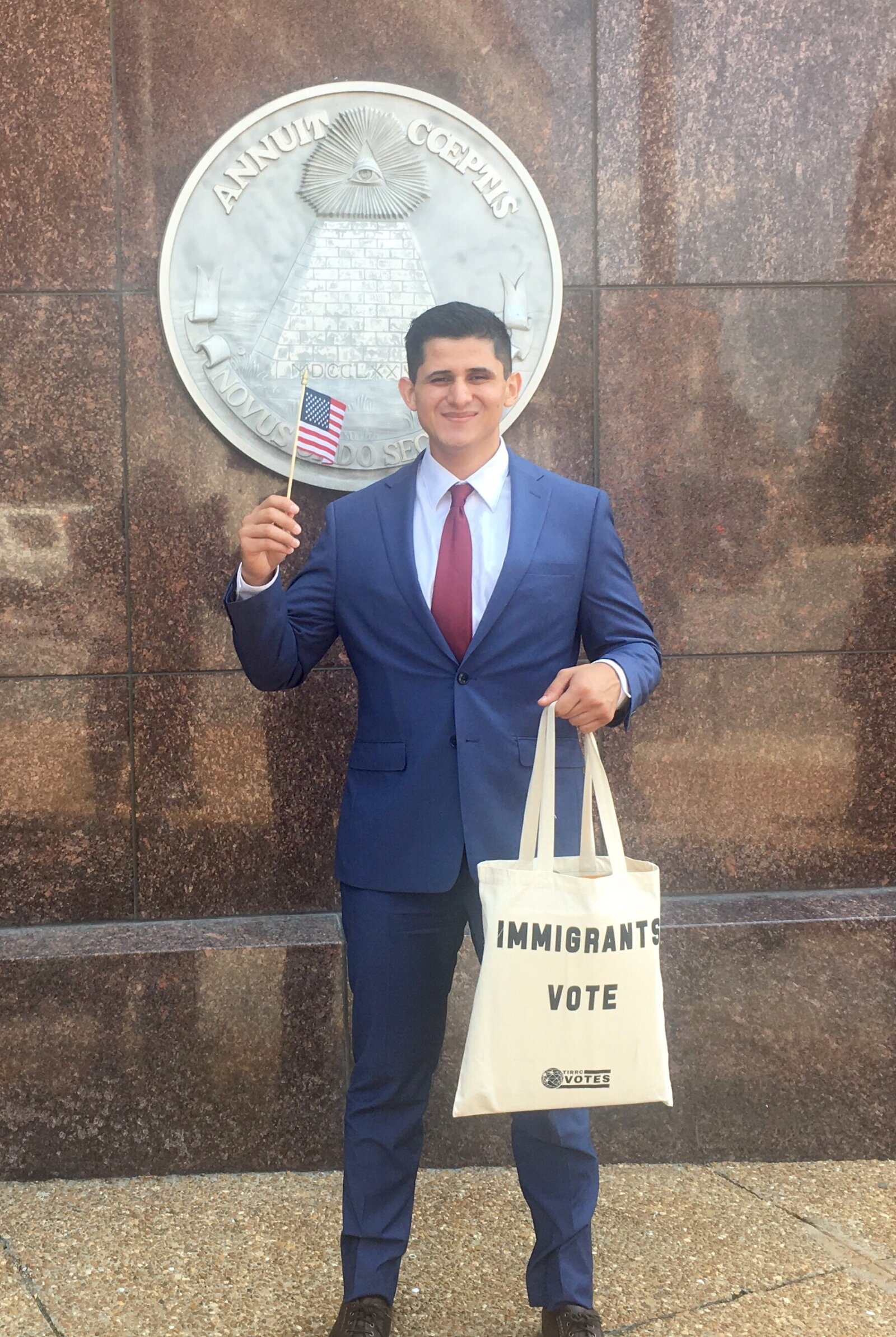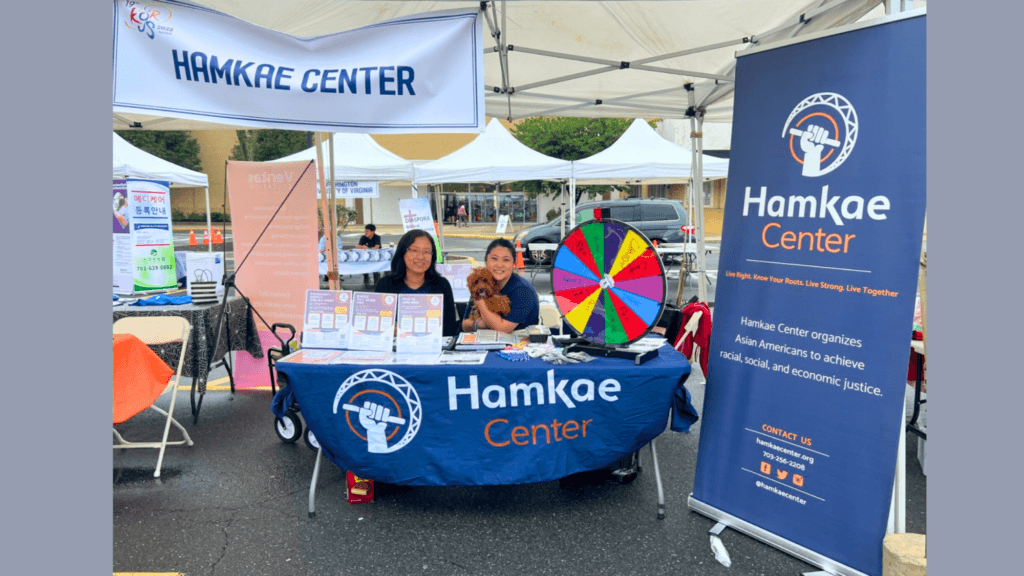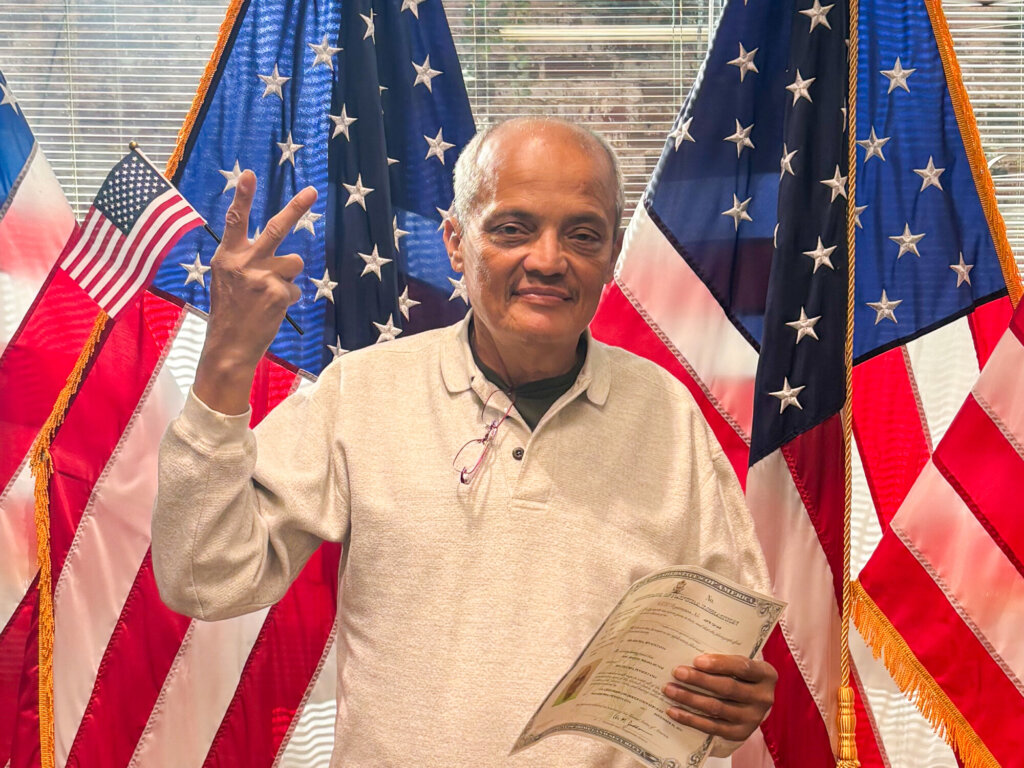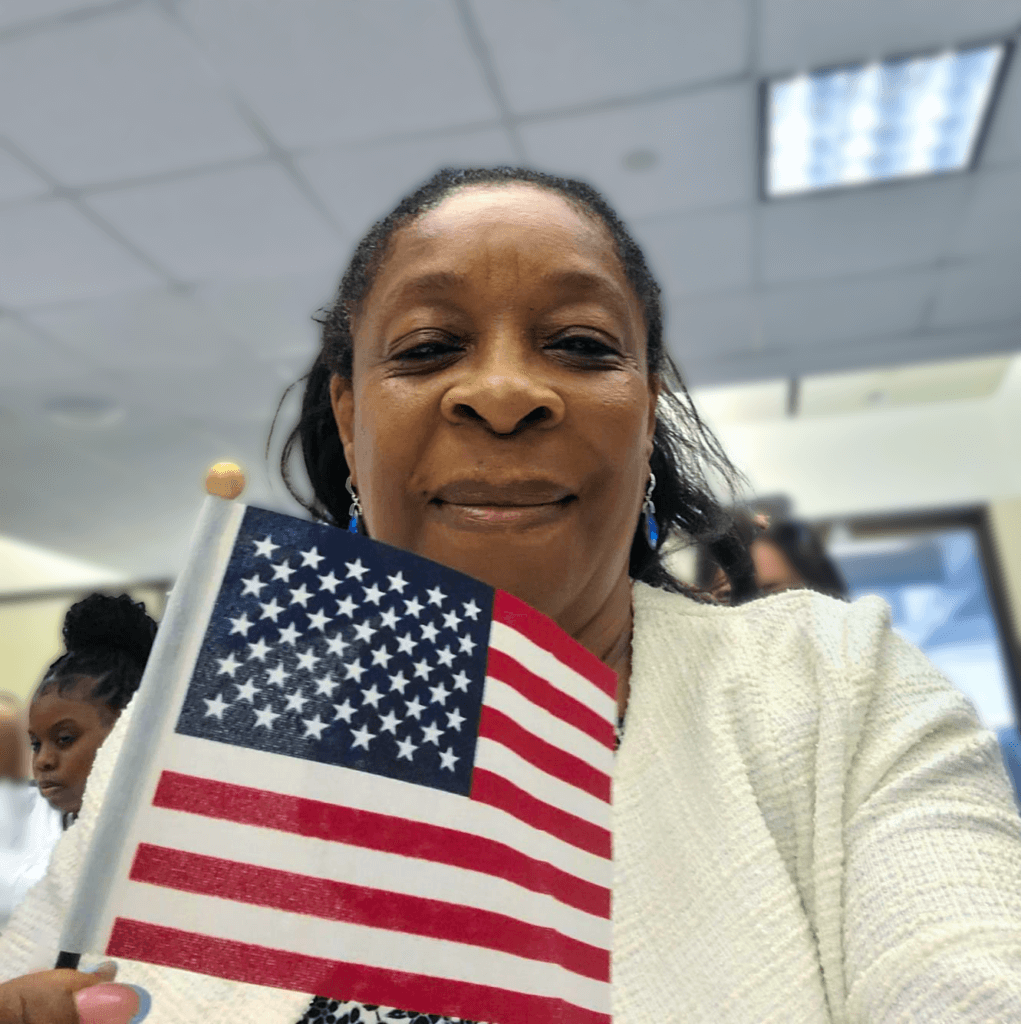Jorge Salles Díaz: “I Want to Make Immigrants Feel Like They Belong”

Explore more
Jorge Salles Díaz is
project coordinator for the Tennessee Immigrant and Refugee Rights Coalition
(TIRRC) in Nashville, a New Americans Campaign affiliate. Jorge is a 2018
graduate of Vanderbilt University and this July 25, he became a United States
Citizen. We caught up with Jorge just hours after he took his citizenship oath.
It wasn’t until I sat down in the
courthouse and the judge started talking that it hit me—“Wow! It’s happening.” Even
though it is my job [to help people become citizens] I was thinking about what
it means to be an American. The judge gave a very moving speech. She spoke a
lot about the responsibilities that come with being an American. At first this
struck me as odd. I work for the Tennessee Immigrant and Refugee Rights
Coalition and most of the time my conversations about citizenship revolve
around the rights that citizens have. Here was this judge talking about the
responsibilities that citizens have, and that really resonated with me.

I was born and raised in
Guatemala. My dad is in the tech industry and had a work visa so we were
transferred to Miami, Florida a month before my 15th birthday. We
left Guatemala because crime was soaring and my parents were afraid for my
brother and me. We considered a lot of countries, including Australia and Canada.
Eventually we ended up in Miami, in part because we had some family there and
in part because my dad’s job allowed for that.
I think what triggered my desire
to become a citizen and my current career path was the 2016 election. The talk
of immigrants bringing drugs, being rapists and animals just hit home. I
started thinking about what I could do, in my limited capacity, to make
immigrants and refugees feel welcome and feel like they belong. I became
eligible to become a citizen a year and a half ago. I was canvassing for TIRRC,
the organization that I work for, and even though I knew that I was not able to
vote, I wanted to do everything that I could to contribute to our civic life. One
of the things that I could do was get other people to vote. I think canvassing,
and helping give immigrants the franchise, made me really passionate and pushed
me towards wanting to become a citizen. As soon as I was eligible, I thought, “I
want to be able to vote too,” so I started the naturalization process.
I have been very lucky. Actually,
luck is not the word—I’ve been very privileged. I didn’t have the obstacles
that other people have. I want to emphasize that there is no “right way” to
immigrate. My family and I became citizens because we could afford to come here
on a visa, not because we’re better than other migrants. I have heard stories
about people who have an accent and the interviewer getting frustrated; or how fee
waivers are now harder to get. And thanks to my income, I was able to save the
money relatively easily to pay the application fee. I didn’t have to wait years
to save up like some of my clients.
I was affected a little bit by the
backlog. My process was probably six months longer than it would have been four
years ago. My entire family started our process at the same time about a year
and a half ago. My brother naturalized in October of last year in Jacksonville,
Florida. So his only took six months. My parents are in Miami, Florida and my
dad naturalized in January and my mom did so in March. The wait time varies widely.
My parents got lucky because the wait in Miami is now closer to 15 months. I
don’t like to think about it, but, my brother was able to vote last year in the
midterm and I was not. That affected me and many, many other people who were
effectively disenfranchised because of that backlog, which feels very
purposeful.

Of course there are pragmatic
reasons why one would become a citizen and I thought about those as I listened
to the judge today. One of them is just peace of mind. It’s much, much harder
for me to get deported now than it would have when I had my green card. But citizenship
also comes with responsibilities; some are symbolic like putting down roots and
committing to the American project. The judge reflected on American tradition
and what it has meant to be a citizen in the past. “We don’t have a king,” she
said, “It’s rule, not just for the people, but by the people.” She emphasized,
that we are responsible for what happens in our government and what happens in
our civic life. That part is so moving. I felt a calling, you know, for
reforming and creating a more perfect union.
I’ve received a lot of opportunities in the United States, so many, so many. If I lived in Guatemala, my high school experience would have been radically different. I didn’t speak English before I got here. Learning the language helped me get into Vanderbilt. It might sound dramatic, but my dad might not be alive if we didn’t live in America. He got a very aggressive form of cancer a couple of years after we came here and some of the most eminent specialists in that type of cancer were at the University of South Florida, so he was able to get treatment and his cancer has gone into remission. We were lucky that my dad has decent health insurance. What I want is for this country to be able to give everyone those same opportunities that my family and I had. I think that America is capable of doing so and my desire to help the country expand those opportunities is why I decided to become an American.



